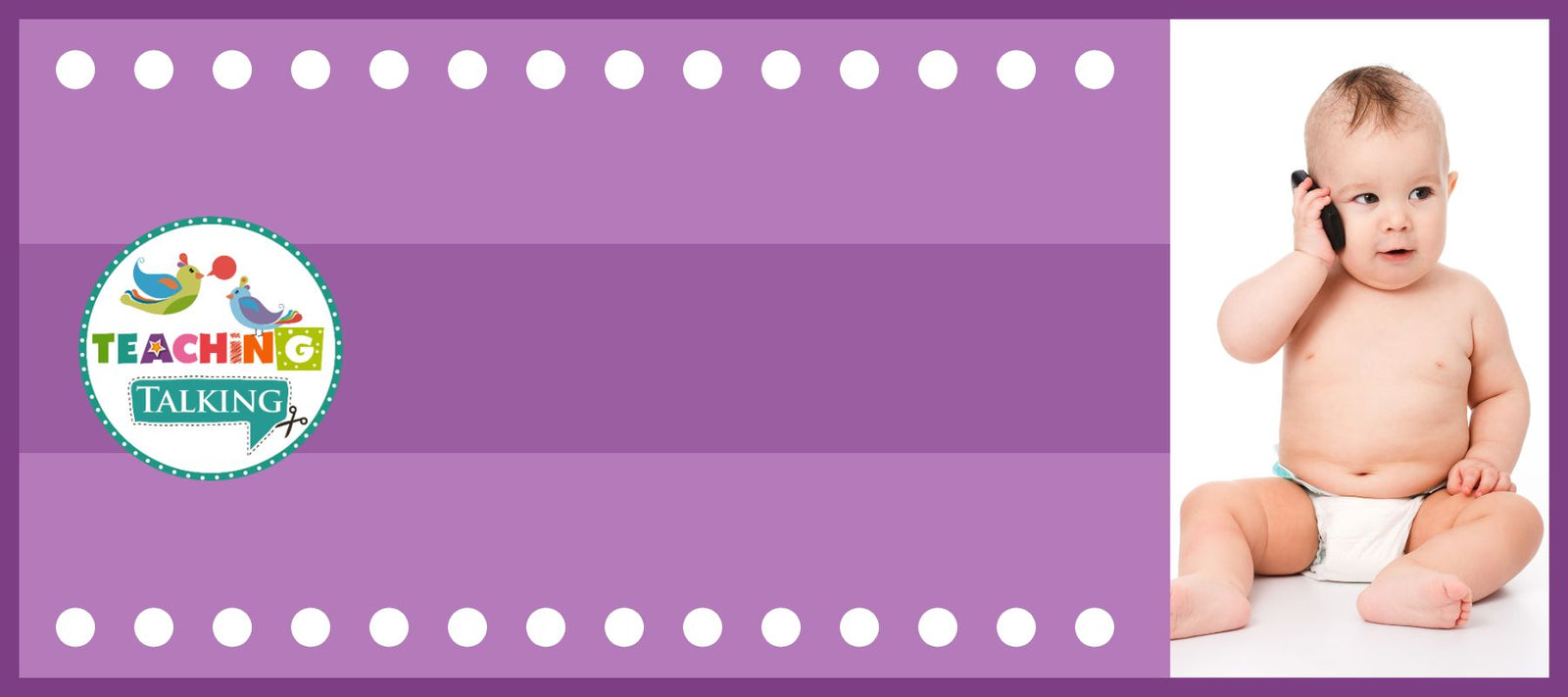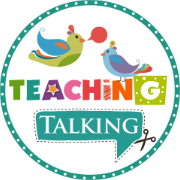
Language Development from Infancy to Childhood
April 14, 2015 5 min read
Is my child on track with Language Development Milestones?
Language development refers to the way your child communicates, starting with the first sounds your baby makes right up to using sentences.
From the time your child is born, they are communicating with you, even if they don’t have any words.

Language for infants is crying, cooing and gurgling, whereas six-year-olds can talk nonstop, using more complex language and adding emotional texture to their words to relay happiness, sadness or anger.
Children often understand more language than they are able to use themselves. Understanding is called receptive language development. When a child begins to use sounds, words and then sentences to express meaning, this is called expressive language.
Understanding the stages of language development in children will help you guide your child in the right direction, as well as be aware of their progress to watch out for possible problems or delays. Remember, each child develops differently and at a different rate, so there is no exact month or age each milestone can be reached, only a general guideline.
See this page for detailed advice on helping your child to develop language through language activities that arise in everyday life.
Language in Infants
The early stages of infant communication are subtle but very important. Long before they learn to speak, infants discover sound.
A baby will respond to the sound of his mother’s voice, by turning to look in her direction. Along with cries of distress, babies also begin to coo, gurgle, and laugh.

The first year is filled with babbling, cooing and sing-songy noises as babies learn to use their vocal cords. Around nine months, the babbling may turn into two syllable sounds, such as gaga, mama or dada.
They are often just experimenting with sound, and may not actually be directed at any specific person or thing. Nevertheless, repeat these sounds back and encourage every little noise your baby is making. This is the beginning of communicative language!
A good rule of thumb is to expect the first words around your child’s first birthday. Some are convinced that girls often speak sooner than boys, some as young as nine months, while boys tend to utter their first words from 12 to 16 months. I have yet to see any evidence to back up this gender difference but it is certainly true that every child is an individual and there is a wide variation on what is normal communication development.
Reading to your baby from the time they are born helps introduce sounds and vocabulary into your child’s development pattern. Picture books with great illustrations and single words or repetitive phrases on each page are ideal for children under one year.
The main toy your child needs at this age is you! Playing on a parent’s lap, face to face is better than any toy to develop communication. If you are looking to buy quality baby education toys, I have written an article sharing my top tips on choosing toys to develop communication skills.
Toddler Language Development
Toddler language development tends to run in bursts. Sometime before 18 months, your child will suddenly put words to common things, like cup, toy, mama, dada, and so on.

Unlike the infant stage, this is more than just extended sounds, these words are directed at something specific. Your child has discovered how to identify and speak about certain objects, people or words.
When you read to your toddler, they are able to point out items on the page. Where’s the ball? Baby points to the ball. At this age, toddlers understand much more than they can repeat. You might be surprised when you casually tell your toddler to put a stray sock in the laundry basket and they comply immediately.
By the time your child reaches their second birthday, their vocabulary could be as high as 200 words. They can communicate two or sometimes three-word phrases, such as “read book” or “more milk”.
Children under two should be immersed in songs, stories and active play. Nursery rhymes and finger play songs, such as itsy bitsy spider are a perfect choice. Your child will hum along and fill in the words they know while they do the actions. They can also point out the eyes, nose and other body parts.
It is the interaction with adults and other children that is important at this stage as your toddler learns from the language spoken by those around him. If you are looking for a game you can play to include your toddler whilst having fun with older children.
I am often asked for my opinion on quality toys for this age group. The most popular and commercial are not always the best. Check out this article for my thoughts on toddler language development activities.
Language Development in Preschoolers
Learning to ask questions is a major part of communication development in preschoolers. Preschoolers learn to vocalize all the ponderings that go through their mind. As a result, you may hear a lot of “What’s that?” from your child.

While sentence structure becomes more clear, your preschooler’s speech will increase to the point where the majority of people will understand what they are saying much of the time.
They will also submit a litany of questions about everything they see, hear, and do. While it might drive you crazy, it’s also a normal part of the language development of preschoolers.
At this age, language moves in at warp speed. Seemingly out of the blue, your child will be speaking words with 3, 4, or more syllables. They will also pick up on common phrases you use yourself. Don’t be surprised to hear your three year old respond to a ringing phone with “stupid telemarketer.”!
Yes, your child has reached the developmental age that makes the parent pay close attention to every word their child is hearing around the house! At this age, children also engage in conversation and can retell parts of their day, such as shopping trips or special games they played.
Children’s Language Development
Once the school years begin, children’s language development, articulation and understanding really begin to take hold. Along with social skills, your child is learning the impact their words can have on others as well. Language development goes from shorter phrases to more complex sentences.

As your child learns to read, write, count, add and subtract, they also develop a better sense of what others are saying. By the time a child is seven, they can start pointing out flaws or mistakes in other peoples speaking, particularly Mom and Dad!
Understanding the stages of communication in children is important for both parents and caregivers, to help guide your child toward milestones. Children learn best from the people around them every day.
Reading, singing and general chit chat are the best ways to encourage your child’s talking. While a little television watching or movies can provide some entertainment, toddlers especially need the physical awareness of seeing your mouth movements; expressions and tones are not visible to them from two-dimensional sources.
Also, keep in mind, your children won’t develop language by magic. Children learn what they live, so read, read, read and talk, talk, talk to your child from infancy onward. It truly is the best thing you can do to encourage language development in your children.
Other articles you might like to read…
Subscribe
Sign up to get the latest on sales, new releases and more …




